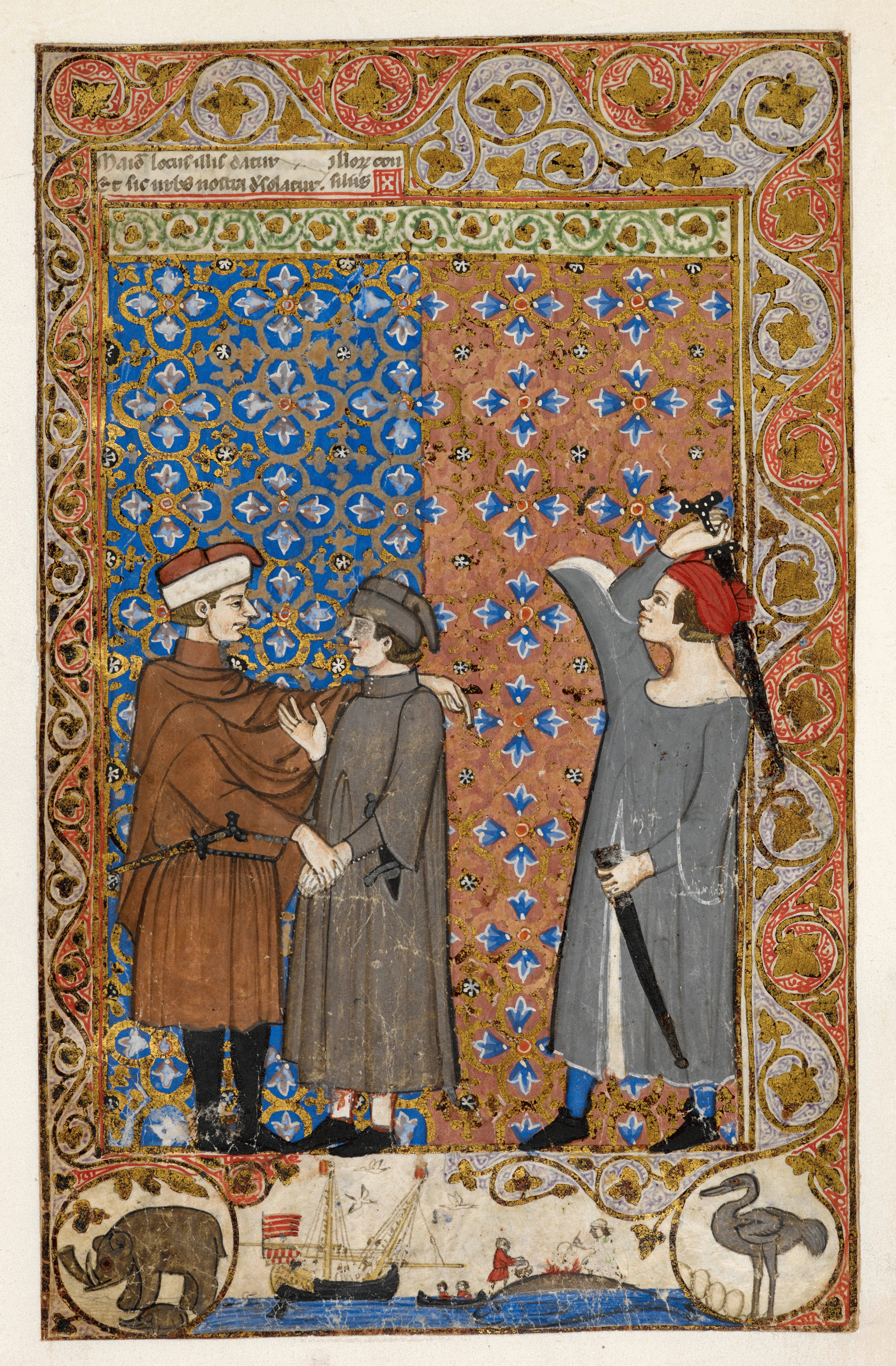Matinée
Dieter Blume: Between vices and virtues – How to survive in an Italian 'Comune' of the Trecento

The lecture will compare two manuscripts of the first half of the fourteenth century made mainly for personal use, and discuss problems of ethics in the political and social struggle of the Italian city-states. These books, despite their similarities – not least of which is the excessive use of images – are quite different, and argue in diverse ways through both text and images. One is the Documenti d'Amore of Francesco da Barberino, compiled in France and copied and illustrated in Florence around 1320. The other is the Tractatus de septem vitiis written by the grandson of Pellegrino Cocharelli in Genoa between 1330 and 1340. I will deal with questions of allegory and its application in the social context of everyday life, as well as with the various ways nature is articulated. Both books are important and tremendously rich documents of the intellectual culture of lay-people at that time and reveal not only the broad horizon of interests, but also show how firmly the various pictorial worlds were anchored in the consciousness of these people.
Dieter Blume studied art history, history, and ethnology at the University of Heidelberg, where he received his PhD in 1981. He was awarded a habilitation at LMU Munich in 1991. He curated the exhibition Nature and Antiquity in the Renaissance at the Liebieghaus, Frankfurt/Main in 1985. Prof. Blume has held teaching positions at the universities of Munich, Frankfurt, Heidelberg, Zurich, and Baltimore (John Hopkins University). From 1994, he was professor at the Friedrich Schiller University in Jena, where, since 2018, he has been emeritus professor. From 1996 to 2013 he headed the Research project Sternbilder des Mittelalters und der Renaissance – Der gemalte Himmel zwischen Wissenschaft und Phantasie and, from 2005 to 2007, together with Matthias Werner, he curated the exhibition Elisabeth von Thüringen – Eine europäische Heilige at Wartburg Castle. He is currently leading a research project (2013–2020), with Christel Meier-Staubach, on the reception of Ovid in the Trecento.
13. November 2019, 11:00 Uhr
Kunsthistorisches Institut in Florenz
Max-Planck-Institut
Palazzo Grifoni Budini Gattai
Via dei Servi 51
50122 Firenze
Hinweis
Diese Veranstaltung wird durch Fotografien und/oder Videoaufnahmen dokumentiert. Falls es nicht Ihre Zustimmung findet, dass das Kunsthistorische Institut in Florenz Aufnahmen, auf denen Sie erkennbar abgebildet sein könnten, für die Veranstaltungsdokumentation und Öffentlichkeitsarbeit (z.B. Social Media) verwendet, bitten wir um eine entsprechende Rückmeldung.


